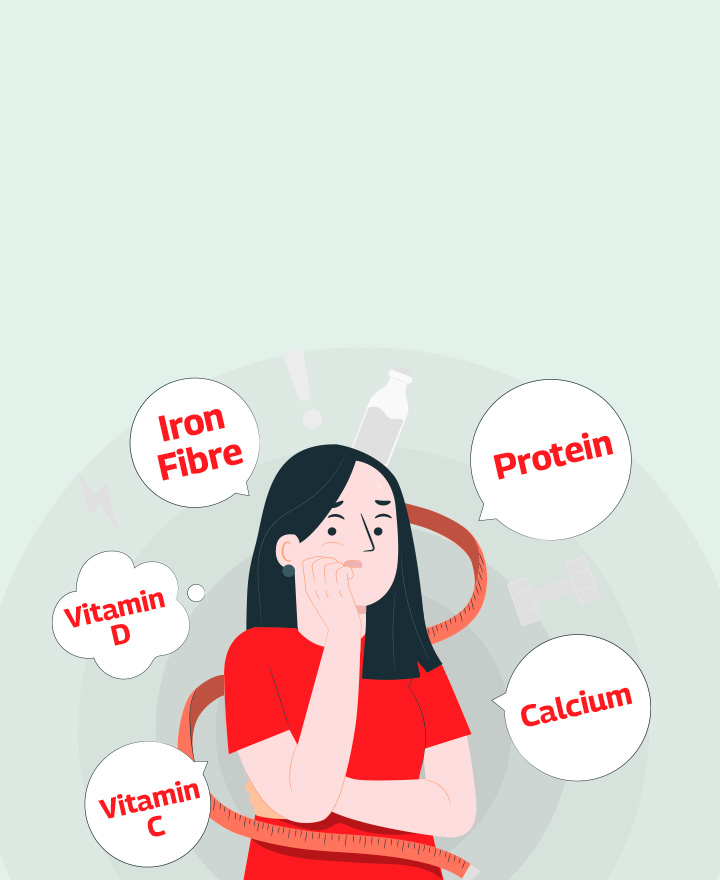

Oats Nutrition Myths Debunked
Oats are one of the most commonly consumed types of breakfast, particularly because of their health benefits; however, there are many myths about its nutritional aspect. Knowing the real facts about oats nutrition will enable you to make the right decision. Let’s look at 5 commonly associated myths about oats.
Myths vs. Facts
Myth 1: Oats Are High in Calories
Fact : There is a common misconception that oatmeal is very high in calories, but this is not quite true. The calories in oats (100 g) are moderate compared to other meals taken in the morning. Oat calories do not present a problem in the sense of being difficult to fit into a person's daily calorie intake. Surprisingly, 100 grams of oats contain about 389 calories, which can be considered low given the other vital nutrients one can obtain from oats.
Myth 2: Oats Have Low Nutritional Value
Fact : Some assume that oats are nutritionally poor. Oats’ nutritional value per 100 g is impressive. Oats are rich in fibre, protein, and essential vitamins and minerals. They provide a significant amount of iron, magnesium, and B vitamins, making them a nutritious addition to your diet.
Myth 3: Oats Are Only Good for Breakfast
Fact : Some people believe that oats are not nutritious at all. However, the nutritional value of oats per 100 g is relatively high. Oats are among the healthiest grains because they come loaded with fibre, protein, and many essential nutrients. They are quite rich in iron, magnesium, and B-complex vitamins, so they are quite healthy for consumption not only for breakfast but at other meal times as well.
Myth 4: Instant Oats Are Not Nutritious
Fact : Instant oats often get a bad rap for being less nutritious than traditional oats. However, oats’ nutritional value per 100 g is similar across different types of oats. The primary difference lies in the processing method. Instant oats are pre-cooked and dried for convenience but still retain most of their nutritional benefits.
Myth 5: Oats Can't Help with Weight Management
Fact : Some believe that eating oats won't contribute to weight management. On the contrary, the calories in oats (100 g) can be beneficial for weight loss or maintenance. The high fibre content in oats promotes a feeling of fullness, which can help reduce overall calorie intake. Additionally, oats are packed with nutrients that support a healthy metabolism.
Conclusion
Understanding the facts about oats’ nutrition helps debunk common myths and allows you to appreciate their true value. Incorporating oats into your diet can provide numerous health benefits, from essential nutrients to weight management support. So, enjoy your bowl of oats with confidence, knowing you're making a nutritious choice.
One of the important components of our overall wellness is also being financially secured. Healthcare emergencies can happen any time, but a good health insurance policy can protect you from such uncertain situations. To know more about Wellness and other health related tips, visit the wellness corner.
Source: mygnp.com, medindia.net, pharmeasy.in
Disclaimer: This blog provides general information and discussions about health and related subjects. The information and other content provided in this blog, website or in any linked materials are not intended and should not be considered, or used as a substitute for, medical advice, diagnosis or treatment. Kindly contact your Doctor before starting a new medicine or health regime.
Related Articles
Top 10 High-Fiber Foods to Help Your Digestive Health
Health Benefits of a Fiber-Rich Diet
6 Best Types of Foods to Eat When Detoxing from Alcohol
Published on August 13, 2024














 Health Insurance
Health Insurance  Travel Insurance
Travel Insurance  Car Insurance
Car Insurance  Cyber Insurance
Cyber Insurance  Critical Illness Insurance
Critical Illness Insurance
 Pet Insurance
Pet Insurance
 Bike/Two Wheeler Insurance
Bike/Two Wheeler Insurance  Home Insurance
Home Insurance  Third Party Vehicle Ins.
Third Party Vehicle Ins.  Tractor Insurance
Tractor Insurance  Goods Carrying Vehicle Ins.
Goods Carrying Vehicle Ins.  Passenger Carrying Vehicle Ins.
Passenger Carrying Vehicle Ins.  Compulsory Personal Accident Insurance
Compulsory Personal Accident Insurance  Travel Insurance
Travel Insurance  Rural
Rural